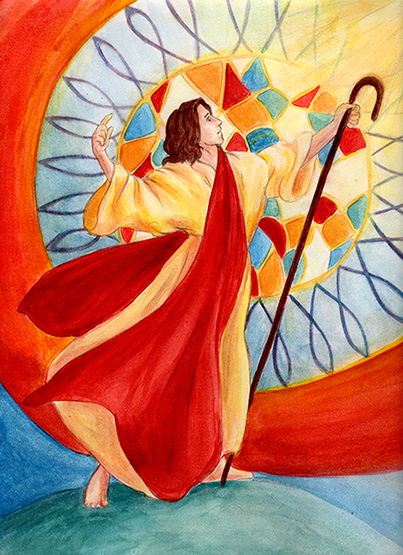|
Then they praised the God of heaven in these words: "Blessed are you, God, with every pure blessing! Let all your chosen ones bless you forever! Blessed are you, for you have made me happy; what I feared did not happen. Rather you have dealt with us according to your abundant mercy." Tobit 8:15-16 If evil could win, the world would be absurd. The world would be absurd if God did not have the final say.
It can be very confusing when humans do evil things because we are all created in the image of God. So when our neighbor, the tangible image of God, does something wrong our innocent notion of the world is thrown into chaos. If we make imperfect people idols, we become confused. And then it becomes hard to forgive and move on. But, if we worship God alone, we can forgive people. Because forgiveness is a declaration that God will have the final say in the situation. When we order all things in our life under God, we can start to separate evil from good. We can separate the evil a person does from the natural good God made them to be. Forgiveness is more of a confident confrontation with evil when we know its end and aim. It can separate the evil someone does from the potential for good. When we forgive, we protect ourselves better because we know imperfect people are not God. But we can also pray for the offender to change for the better with that expectation and hope of the new and good from God. We can have hope in that good power of God that can inspire actions to Him. And when you do that, the natural consequence is that you can still wish that person well. You can want them to have the greatest good, which includes true and deep repentance. Because forgiveness is the declaration that evil will not have the final say. Forgiveness is a declaration that God will have the final say. And so in suffering, the consolation of hope is that evil and good are separate, and then God - who is pure good - will have the final say. _______ “Blessed are you, for you have made me happy; what I feared did not happen.” Bible verses: NABRE © 2010. CCD. All rights reserved.
0 Comments
Leave a Reply. |
Quis ut Deus?In search of the Face of God. Personal blog with musings, thoughts, and stories. Archives
June 2024
Categories |

 RSS Feed
RSS Feed